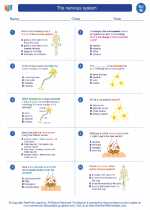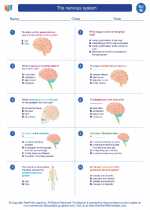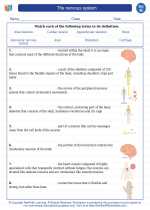Regulatory Systems
Regulatory systems in living organisms are responsible for maintaining a stable internal environment, despite changes in the external environment. These systems coordinate and control various physiological processes to ensure the body functions optimally.
Nervous System
The nervous system is a complex network of cells that transmit signals between different parts of the body. It consists of the central nervous system (brain and spinal cord) and the peripheral nervous system. The nervous system regulates and coordinates bodily activities and responds to internal and external stimuli.
Endocrine System
The endocrine system is made up of glands that produce and secrete hormones, chemical messengers that regulate various bodily functions. These hormones are released into the bloodstream and travel to target organs, where they elicit specific responses. The endocrine system plays a key role in regulating metabolism, growth and development, tissue function, sexual function, and more.
Immune System
The immune system protects the body from harmful substances, pathogens, and abnormal cells. It is comprised of a network of cells, tissues, and organs that work together to identify and neutralize potentially harmful entities. The immune system also has a memory function, enabling it to recognize and respond more effectively to previously encountered threats.
Study Guide
- Define regulatory systems and explain their importance in living organisms.
- Compare and contrast the nervous and endocrine systems, highlighting their modes of communication and regulatory functions.
- Discuss the role of the immune system in maintaining homeostasis and defending the body against disease.
- Explain the concept of feedback mechanisms in regulatory systems, and provide examples of positive and negative feedback loops in the human body.
- Explore the impact of disruptions in regulatory systems on overall health, citing examples of diseases or conditions associated with dysfunction in these systems.
◂Science Worksheets and Study Guides Eighth Grade. The nervous system

 Worksheet/Answer key
Worksheet/Answer key
 Worksheet/Answer key
Worksheet/Answer key
 Worksheet/Answer key
Worksheet/Answer key
 Vocabulary/Answer key
Vocabulary/Answer key
 Vocabulary/Answer key
Vocabulary/Answer key
 Vocabulary/Answer key
Vocabulary/Answer key
 Vocabulary/Answer key
Vocabulary/Answer key
 Vocabulary/Answer key
Vocabulary/Answer key
 Vocabulary/Answer key
Vocabulary/Answer key
